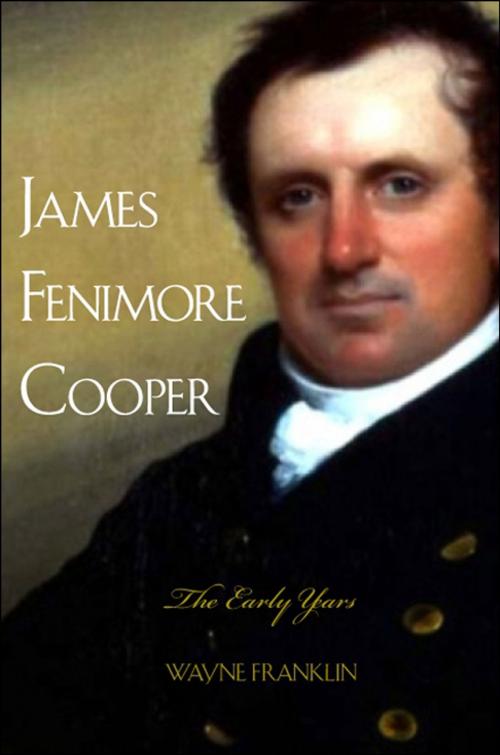| Author: | Prof. Wayne Franklin | ISBN: | 9780300135008 |
| Publisher: | Yale University Press | Publication: | October 1, 2008 |
| Imprint: | Yale University Press | Language: | English |
| Author: | Prof. Wayne Franklin |
| ISBN: | 9780300135008 |
| Publisher: | Yale University Press |
| Publication: | October 1, 2008 |
| Imprint: | Yale University Press |
| Language: | English |
James Fenimore Cooper (17891851) invented the key forms of American fiction-the Western, the sea tale, the Revolutionary War romance. Furthermore, Cooper turned novel writing from a polite diversion into a paying career. He influenced Herman Melville, Richard Henry Dana, Jr., Francis Parkman, and even Mark Twain-who felt the need to flagellate Cooper for his literary offenses.” His novels mark the starting point for any history of our environmental conscience. Far from complicit in the cleansings of Native Americans that characterized the era, Cooper’s fictions traced native losses to their economic sources.
Perhaps no other American writer stands in greater need of a major reevaluation than Cooper. This is the first treatment of Cooper’s life to be based on full access to his family papers. Cooper’s life, as Franklin relates it, is the story of how, in literature and countless other endeavors, Americans in his period sought to solidify their political and cultural economic independence from Britain and, as the Revolutionary generation died, stipulate what the maturing republic was to become. The first of two volumes, James Fenimore Cooper: The Early Years covers Cooper’s life from his boyhood up to 1826, when, at the age of thirty-six, he left with his wife and five children for Europe.
Perhaps no other American writer stands in greater need of a major reevaluation than Cooper. This is the first treatment of Cooper’s life to be based on full access to his family papers. Cooper’s life, as Franklin relates it, is the story of how, in literature and countless other endeavors, Americans in his period sought to solidify their political and cultural economic independence from Britain and, as the Revolutionary generation died, stipulate what the maturing republic was to become. The first of two volumes, James Fenimore Cooper: The Early Years covers Cooper’s life from his boyhood up to 1826, when, at the age of thirty-six, he left with his wife and five children for Europe.
James Fenimore Cooper (17891851) invented the key forms of American fiction-the Western, the sea tale, the Revolutionary War romance. Furthermore, Cooper turned novel writing from a polite diversion into a paying career. He influenced Herman Melville, Richard Henry Dana, Jr., Francis Parkman, and even Mark Twain-who felt the need to flagellate Cooper for his literary offenses.” His novels mark the starting point for any history of our environmental conscience. Far from complicit in the cleansings of Native Americans that characterized the era, Cooper’s fictions traced native losses to their economic sources.
Perhaps no other American writer stands in greater need of a major reevaluation than Cooper. This is the first treatment of Cooper’s life to be based on full access to his family papers. Cooper’s life, as Franklin relates it, is the story of how, in literature and countless other endeavors, Americans in his period sought to solidify their political and cultural economic independence from Britain and, as the Revolutionary generation died, stipulate what the maturing republic was to become. The first of two volumes, James Fenimore Cooper: The Early Years covers Cooper’s life from his boyhood up to 1826, when, at the age of thirty-six, he left with his wife and five children for Europe.
Perhaps no other American writer stands in greater need of a major reevaluation than Cooper. This is the first treatment of Cooper’s life to be based on full access to his family papers. Cooper’s life, as Franklin relates it, is the story of how, in literature and countless other endeavors, Americans in his period sought to solidify their political and cultural economic independence from Britain and, as the Revolutionary generation died, stipulate what the maturing republic was to become. The first of two volumes, James Fenimore Cooper: The Early Years covers Cooper’s life from his boyhood up to 1826, when, at the age of thirty-six, he left with his wife and five children for Europe.















